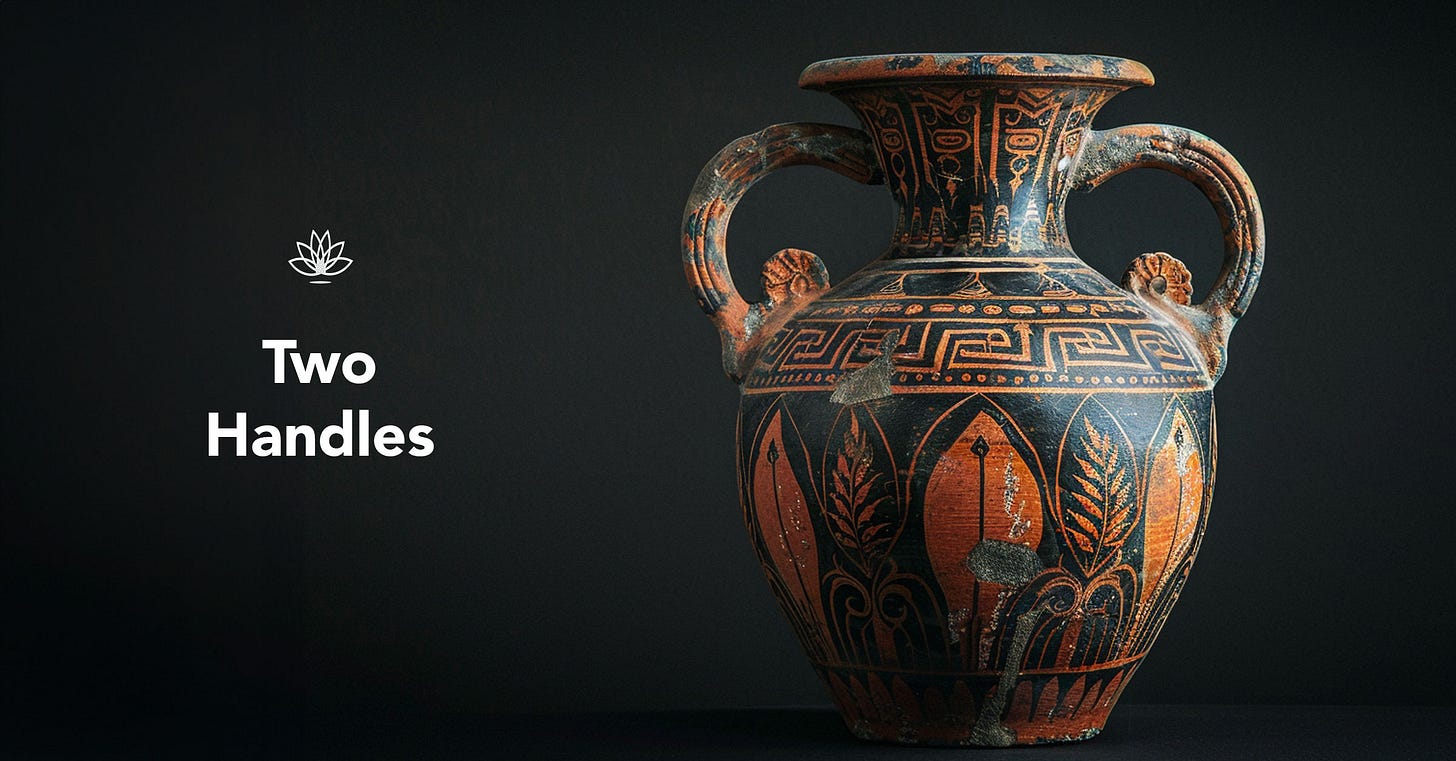Two Handles
"Every event has two handles," Epictetus said, "one by which it can be carried, and one by which it can’t."
Epictetus was a very practical, hands-on philosopher. As a teacher, he challenged students not to "speak fluently about philosophic principles as an idle babbler, but about things that will do you good if your child dies."
Philosophy ought to be used in the service of happiness, not intellectual aggrandizement. He was quite direct and lived his life adhering to those principles.
So what are these two handles of which Epictetus spoke? And how might we use that metaphor in our own pursuit of happiness?
To understand, we must first reflect on a key tenet of ancient Stoicism, one that clearly foreshadows A Course in Miracles. Perception is interpretation.
In other words, what we experience (perception) is not some form of objective reality, but rather an explanation completely and freely defined - by us. This was the core of Epictetus' teaching, finding its way into the course with lines like:
Perception is a mirror, not a fact. And what I look on is my state of mind. (W-pII.304)
Thus the two handles of every event represent two different interpretations. An event may either affect one's state of mind and consequent emotions, or it has absolutely zero correlation with one's well-being. The latter representing the carry-by handle.
Believing the world is the cause of happiness or sorrow is attempting to grasp a life handle for which it cannot be carried. This inevitably leads to further suffering.
Conversely, lifting with the other handle instantly dissipates the burden of despair. "Change but your mind on what you want to see, and all the world must change accordingly." (W-pI.132)
Join me in Thursday's class where we'll explore the nature of these two handles, and how we can practice choosing the one that always leads to glorious peace. I look forward to seeing you then.


